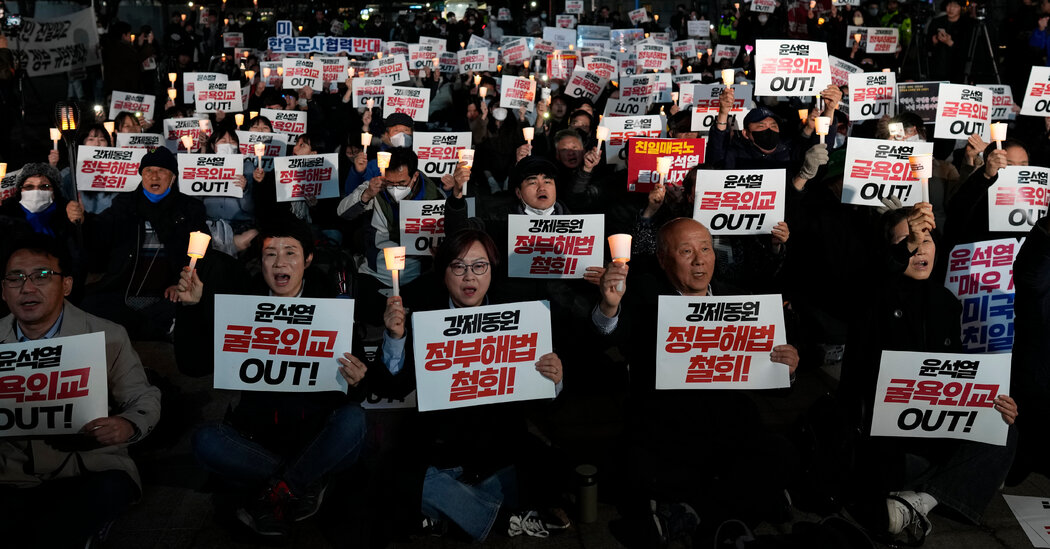South Korea and Japan ease dispute
South Korea announced that it would set up a fund to pay victims of forced Japanese labor during World War II. It’s a sign of strengthening ties between America’s most steadfast Asian allies as the threat from China and North Korea grows.
The fund is the most notable action taken by either country to try and resolve a festering historical dispute, one of several that date back to Japan’s colonization of Korea from 1910 to 1945. South Korea will now stop demanding that Japanese companies compensate the victims, which some view as a concession.
The promise of increased cooperation is a boon to the U.S., which is trying to shore up regional alliances as China grows stronger. President Biden celebrated the deal as “a groundbreaking new chapter of cooperation and partnership.”
And the fund is part of a broader easement. As the regional threats mount, President Yoon Suk Yeol has made improving relationships with Tokyo a top diplomatic goal. He has expanded joint military drills with Japan and the U.S. and asked his people to see Japan as a “cooperative partner” rather than a “militarist aggressor.”
Korea’s reaction: Opposition leaders called it a “capitulation.” Of the 15 victims awarded pay by South Korea’s Supreme Court, only four have expressed support. “I am not going to accept money even if I have to starve,” a 94-year-old said.
Background: Korea’s Supreme Court has stipulated that Japanese companies must pay the compensation, despite Japan’s insistence that the question was settled under a 1965 treaty.
President Volodymyr Zelensky, who called the city “our fortress” a month ago, said that the situation in Bakhmut was a particular focus. Ukraine’s most senior military commander signaled that Ukraine’s fight there should continue, according to Zelensky’s office.
The fight over Bakhmut had seemed in recent days to be reaching a climax. Some Ukrainian officials started preparing the public…
Read the full article here





